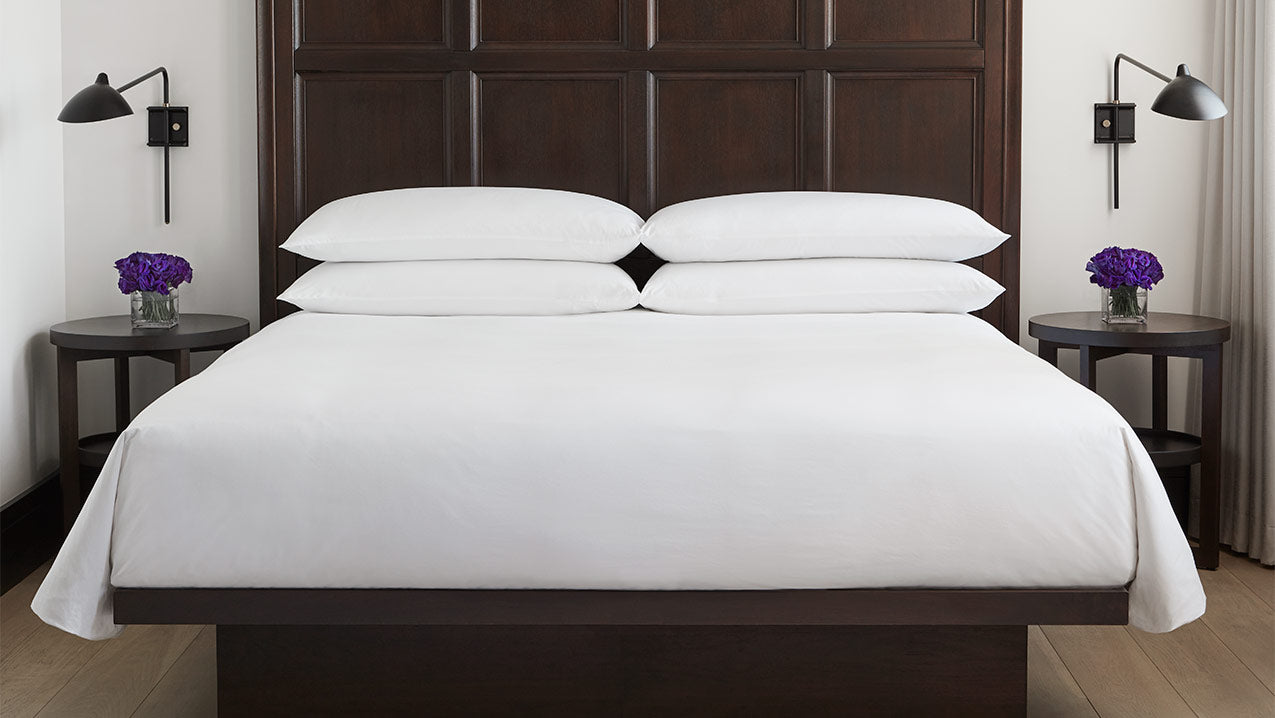Your Cart is Empty

It’s easy enough to choose bedding that fits your personality and style, but how do you know if it’s going to last? Sure, one can assume that the higher the price tag, the better the material but that doesn’t mean you have to necessarily spend a fortune to obtain high quality bedding. There are many factors to keep in mind such as thread count, weave, and fabric type.
Sheets
A common misconception when it comes to purchasing bed sheets is that the higher the thread count, the higher quality. However, that is not the only indicator that determines a quality sheet or pillowcase. The other fibers that are used in its production are just as significant.
Thread count refers to the number of threads woven into a square inch of fabric. When the thread count is higher, most often the sheet will be smoother and softer. A range between 200 to 800 is ideal. Anything over 1,000 won’t guarantee top quality as sometimes the yarns are twisted together. Low count doesn’t always mean low quality as it’s really dependent on the type of thread used.
The best thread type available is cotton, Egyptian cotton, pima, supima, silk, and satin. Premium-quality sheets are woven with cloth using extra-long fibers. When looking at these particular materials, 200 to 400 is a great count to look for. Make sure to also examine the weave. Higher quality bed linens boast a tighter weave. The downside is that tightly woven fabrics are harder to keep clean. If you’re looking for low-maintenance, comfortable bedding, consider sheets with a medium tightness in their weave.
Comforters
Choosing a comforter, which is a fluffy and thick blanket, is a pretty simple task. Comforters are quilted in order to keep the filling, whether it’s synthetic or natural, evenly distributed for comfort and warmth. The heavier the comforter, the warmer it will be. A comforter with a high thread count will be the most durable.
Down Comforters
The two main components of a down comforter is fill power and loft. Fill power is the amount of space an ounce of filling takes up for maximum loft. The higher the fill power, the softer and fluffier the comforter.
Down is derived from geese or ducks and is a natural, fluffy, warm insulator which is why it’s commonly used in comforters. You will find that goose down is fluffier than duck down. If allergies are a concern, opt out for down-alternative options.
To learn more about how we responsibly produce our down products, click here.
Pillows
Pillows are one of the most essential pieces to achieving that perfect night’s sleep. The best way to know what kind of pillow to buy is to listen to yourself and know how you sleep. Choosing a quality pillow is entirely based on your sleep position. Stomach sleepers need a soft, flatter pillow. Back sleepers usually prefer a medium-thick pillow, while side sleepers rest best on thick, firmer pillows for neck support.
Comments will be approved before showing up.